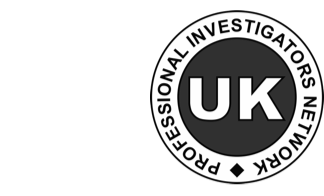CBF Contacted us when one of their employee’s filed a claim for discrimination and unfair dismissal, he had sustained an injury at work and claimed he was unable to return due the impact of the injuries. The employer’s insurance provider were dealing with the injury claim but the employee was refusing to engage with them and despite being offered a return-to-work on light duties, he claimed he was unable to drive or get to work and therefore couldn’t see occupational health.
The employee was eventually dismissed and claimed this was because of his disability, there were a number of other employee’s who suspected he was exaggerating the extent of his injury and one claimed there were images on his partners social media accounts which showed them out playing in a local park.
Other staff knew our employee was exaggerating his injuries but nobody was willing to give a statement, we were able to use the evidence to prove gross misconduct and saved ourselves going to tribunal.
M*****, Director – CBF
The company were satisfied that they had reasonable grounds for dismissal but the injury could have been classed as a disability and that complicated the matter, the company wanted to establish whether the employee’s behaviour was consistent with his claims so they contacted ourselves. After the initial consultation we were satisfied that the use of a private investigator was justifiable and proportionate so we set about planning a short period of surveillance. We agreed to conduct 5 days of surveillance at the employee’s address.
On the first day of surveillance we observed the employee leaving his home address with his partner, they got into his vehicle and he proceeded to drive to a wellknown hardware shop. Whilst inside the shop he was seen bending over and picking up a case of flooring which we estimated to weigh approximately 15kg, he carried the items on his shoulder, paid for them and returned to the vehicle where he and his partner returned to their home address.
Over the following days the subject was observed consistently driving (despite being with his partner who had proven she was able to drive), they went shopping, visited friends and even returned to the hardware shop. We presented our evidence as a surveillance report which contained a chronological list of observations and time/date stamped footage, we also provided video footage to support our claims.
The report was presented to the employee who proceeded to withdraw his claim, the insurance company also used the evidence to reassess the personal injury claim.
The average wait to dispose of a Tribunal is 19 months and the average cost is £17,350 (based on 40-60 hours legal preparation and 1 day of hearing including expenses). This does not take into consideration the cost of recruiting and training a replacement, the loss of revenue through through reduced productivity nor the cost of SSP and dealing with the disciplinary process to get to the point an investigator is instructed.
The average fraudulent sickness investigation costs between £4000-£6000 yet employer’s are often reluctant to seek the help from private investigators as they are unaware of the law around the use of surveillance.

 Surveillance
Surveillance Matrimonial Investigations
Matrimonial Investigations Bug Sweeping
Bug Sweeping GPS Vehicle Tracking
GPS Vehicle Tracking Lie Detector Test
Lie Detector Test Person Tracing
Person Tracing Employee Investigations
Employee Investigations Asset Tracing
Asset Tracing Fraud Investigations
Fraud Investigations Injury & Insurance Investigations
Injury & Insurance Investigations







